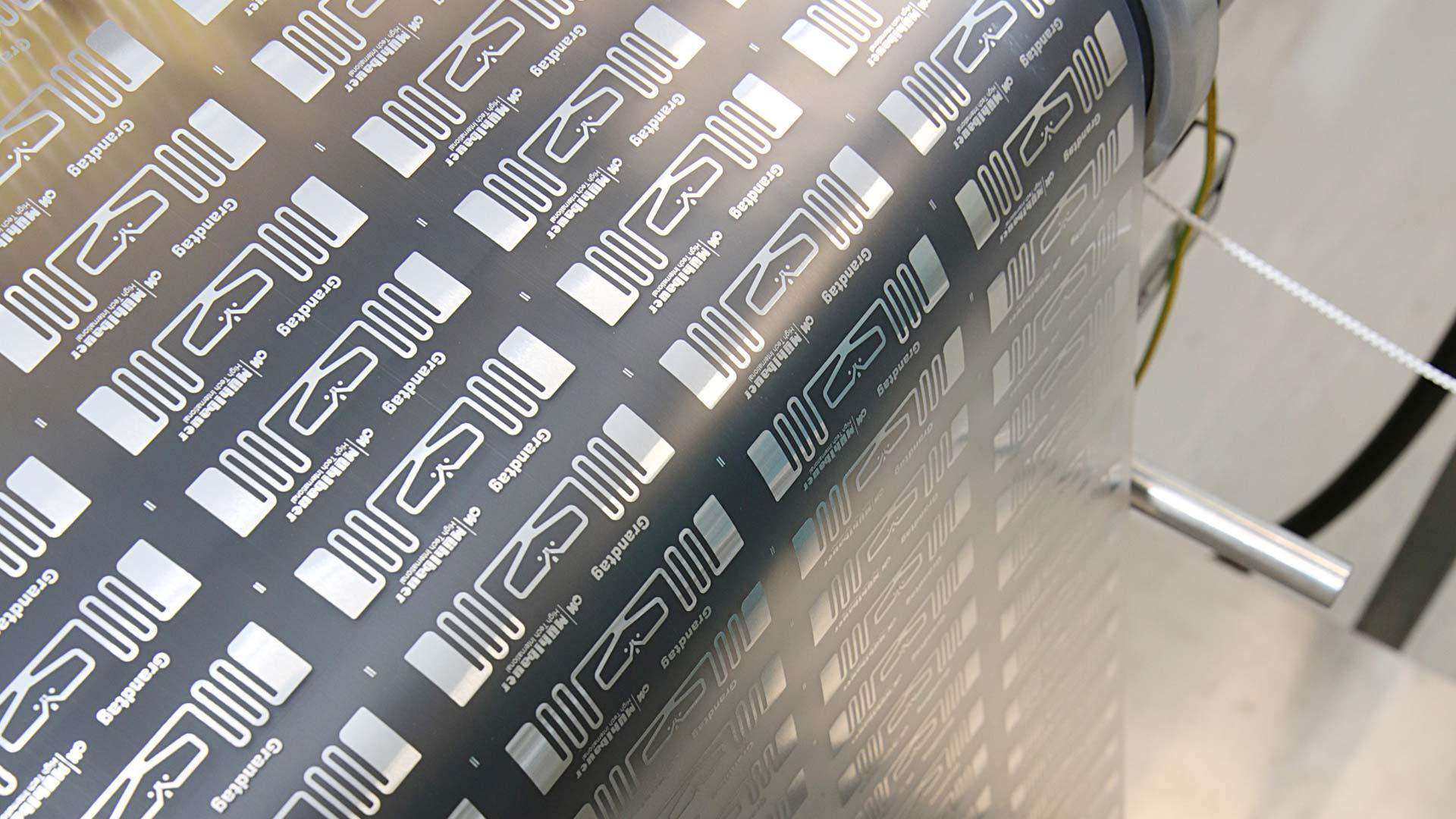
New Electronic Materials for Low-Cost Internet of Things
24 May 2018
CPI, as part of its Necomada project, has created new ink and adhesive formulations aimed at reducing the cost of future Internet of Things (IoT) devices. This benefits the production of flexible printable electronics by greatly increasing the effectiveness, productivity and speed involved in the automated process.
The Internet of Things (IoT) is a term to describe the interconnectivity of everyday devices, vehicles, and home appliances via electronic displays and Internet access. The IoT demand has recently been forecast to have a global potential economic value of £3.8-£10.8 trillion per year by 20251, meaning access to its commercial opportunities could be crucial for companies to maintain innovation.
The ambition of Necomada is to develop materials such as conductive inks and adhesives that are necessary to enable high-speed roll to roll flexible electronics. In doing so, a pilot line will be established that will integrate the materials, printing, component placement capabilities and other conversion processes essential to deliver high volume electronic devices, machine to machine communications and the IoT. The project’s ultimate aim is to use this line as an open access facility for commercial use.
“The Necomada project has been a fantastic opportunity for CPI to showcase its incredible capabilities to develop new inks and adhesives and the integration, scale-up and evaluation of the final product, market acceptability and assessment of manufacturability,” said Neville Slack, Business Development Manager at CPI’s National Formulation Centre and coordinator of the Necomada project.
Products with IoT applications incorporate Near Field Communication (NFC) and Radio Frequency Identification (RFID) tags, which can provide product information to consumers via mobile devices, among other things. Such devices have the potential to enable brand owners to directly communicate with consumers, offering opportunities for direct marketing in high volume consumer products.
To address this, CPI will deliver cost-effective inks and adhesives with optimised electrical conductivity and adhesion, and transfer these inks to its pilot production line. Working alongside twelve other partners in the European Commission H2020-funded consortium, these materials will then be used to make the RFID and NFC tags’ antennae that transmit the signals needed for IoT connectivity.
Currently halfway through the consortium’s three-year timeline, the Necomada project will conclude in the last quarter of 2019.
- McKinsey Global Institute, 2015, The Internet of Things: Mapping the Value Beyond the Hype.
Notes to the Editor
About the Necomada project
The Necomada (Nano-Enabled Conducting Materials Accelerating Device Applicability) project incorporates advanced functional materials to develop customised inks and flexible adhesives that are compatible with high volume manufacturing platforms, with an emphasis on low-cost production. These materials will support high-speed, roll-to-roll integration and large area electronics to address the IoT opportunities.
Necomada also aims to deliver a supply chain that enables future commercialisation and includes a wide range of end-users to ensure its commercial viability within a range of industries including: apparel, healthcare, printing, domestic appliances, smart packaging, and fast-moving consumer goods. For more information visit the Necomada website.
Let’s innovate together
To find out more about how we can work together, please enter your details below.